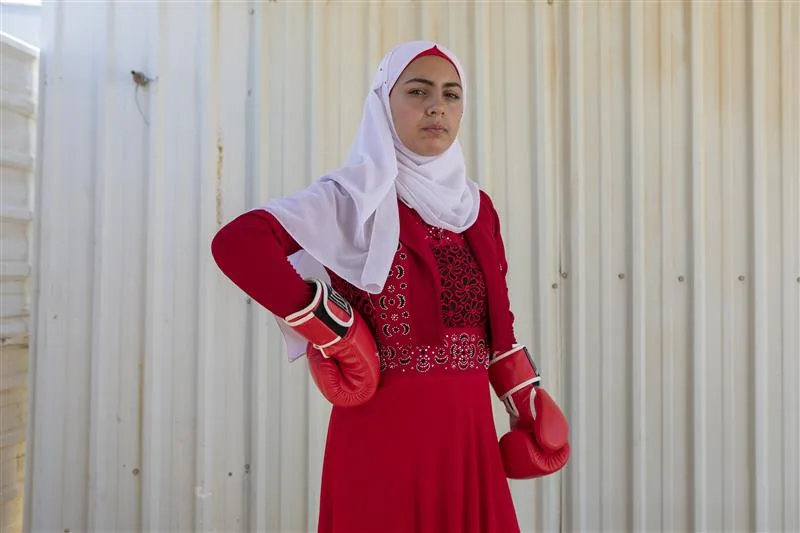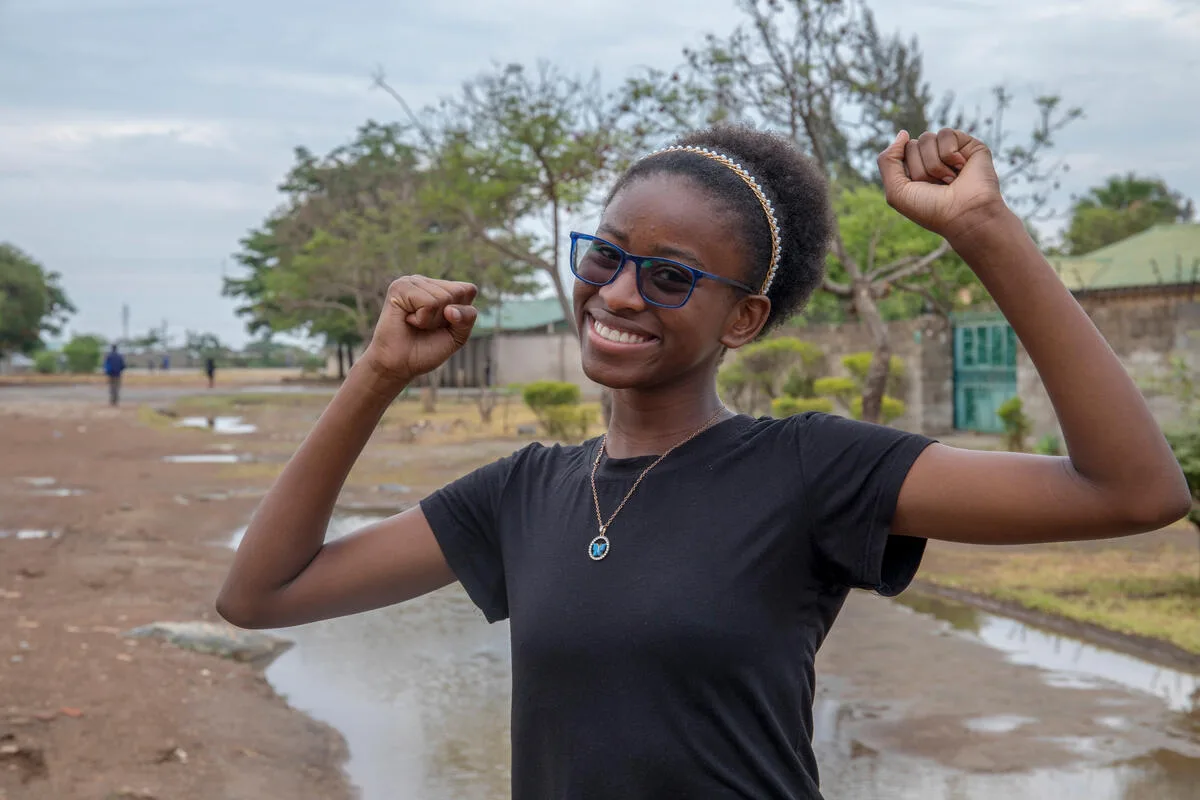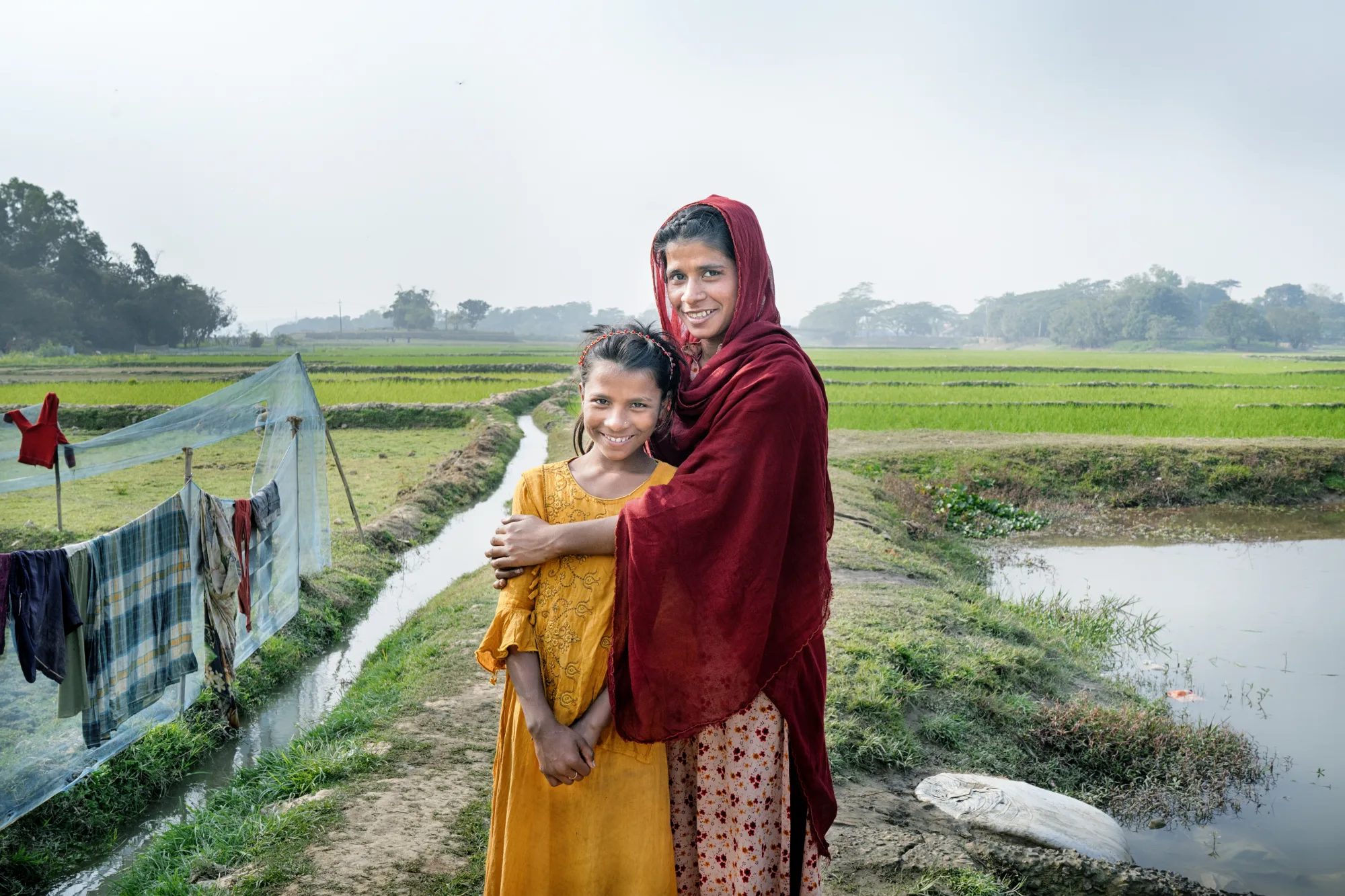Visions for the future: Celebrating girls’ empowerment
Girls in 2024 are disproportionately affected by climate change, poverty, conflict and many other crises.
Globally, one girl is married every three minutes, and in countries considered extremely fragile, that number decreases to one girl married every thirty seconds.
Not only that but Save the Children’s 2024 Global Girlhood Report found that 32 million girls are currently growing up in emergency hotspots where they face the dual challenges of high risk of child marriage and extreme fragility.
But – according to the United Nations – recent studies have found that girls today are not only full of courage, even in the face of extreme crises, they also have hope for the future. Every day they take action, to work towards a future where every girl’s rights are respected and protected.
To celebrate International Day of the Girl Child, we would like to introduce you to three girls who have big dreams for the future and who are working to better their lives and the lives of girls like them.
“Every day something changes in me” – Shehab*, 16, Jordan

A gentle spirit who loves to draw anime and design clothes, Shehab arrived at Za’atari Refugee Camp from Syria when she was four years old. She loved school but was bullied so badly that she ended up dropping out, her confidence shattered.
Save the Children outreach staff in the camp introduced Shehab to the Adolescent Girls Empowerment Centre, which was opened in 2022 and is run by and for young women and girls. Older girls act as mentors and there’s something for everyone, from art therapy, self-defense, and language lessons to yoga and advocacy workshops.
For girls like Shehab who’ve missed out on school, there are also classes to help them catch up, a library, and a nursery so that children with caring responsibilities can bring their siblings to be looked after while they learn and play.
Shehab had planned to quietly blend into the background and protect herself from more bullying, but slowly started to trust that the centre was special. She made friends, gained confidence, and attended workshops on bullying, learning that it was the bullies who had the problem, not her.
With the support and encouragement of the women and girls at the centre, Shehab re-enrolled in school. Now she reaches out to other children affected by bullying and shares what she’s learned about child rights with her community. Shehab’s goal is to stay in education and eventually train to become a human rights lawyer.
“I believe that… knowledge is power” – Justina*, 16, Zambia

Justina, 16, is a climate change activist who has firsthand experience with rapidly changing weather patterns in her community in Zambia.
Over the last few years, there has been extreme heat in Zambia over the summer months. It’s so hot that students at school have been fainting due to the heat – including Justina.
People in Justina’s community pray for rain as a reprieve from the heat, but rain has become synonymous with flooding and, as a result, children can’t go to school without wading through dirty water. Students must make the decision to risk getting sick from dirty water or missing school altogether.
Justina believes that a united community will help in the fight against climate change. She is leading by example and raising environmental awareness by bringing together groups of people in her community to tell them about climate change. Also, and because she loves music, Justina wrote a song that she performs within her community to groups of children.
Looking forward, Justina is worried that climate change will hinder the futures of children around the world. She’s hopeful that by raising awareness in her community people will be encouraged to plant trees, take public transportation, and much more. In the future, Justina dreams of becoming a therapist too.
“We teach them what we learn” – Munni*, 18, Bangladesh

Munni 18, is a trailblazer in her community in Bangladesh – where she lives with her family, including her sister Tanni, 12 – becoming the first girl to try her hand at fish farming.
Munni’s family experienced the impact of climate change firsthand when their home was destroyed during the seasonal floods. “Half of our house was sunk in the mud. And my father repaired it himself. We’ve [been] through a lot here. It’s been painful,” Munni says.
Save the Children implemented the Suchana Programme in Munni’s community, which supports communities to increase sustainable food production; treat malnutrition; educate women and girls on issues such as child marriage; and build climate resilient practice to protect communities against flooding.
Through the training provided by the project, Munni was given ducks so that she could sell the eggs for an income. She also learned how to fish farm in her small pond – with equipment provided to her by Save the Children – and has been teaching other people in the community how to fish farm, particularly climate resilient practices, so that livelihoods are not destroyed during flooding.
In addition to her work building climate resiliency in her community, Munni is also a peer leader for one of the girls’ groups, where she has become an advocate on subjects such as child marriage, health and nutrition.
Shehab*, Justina, and Munni are just three of the girls that Save the Children works with across our many projects – and just three examples of how girls around the world are working to support and empower other girls and their communities.
Full of courage and with hope for the future, girls – when given the right support and tools – can and are changing the world.
To learn more about the challenges facing girls around the world in 2024 – and what Save the Children is doing to support them – check out the full Global Girlhood Report now.
* Name changed to protect identity.


